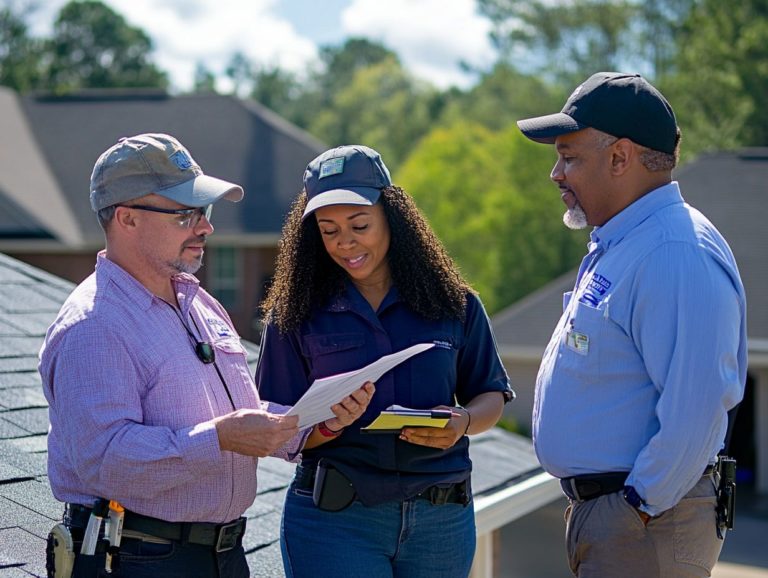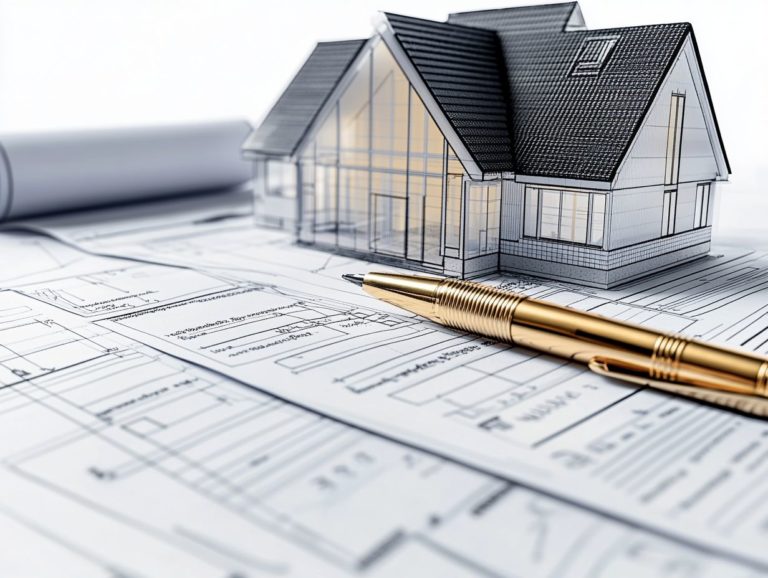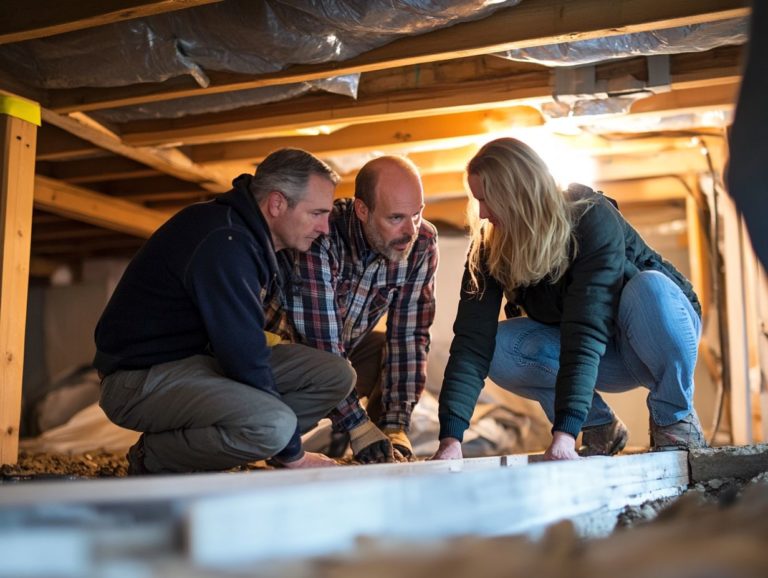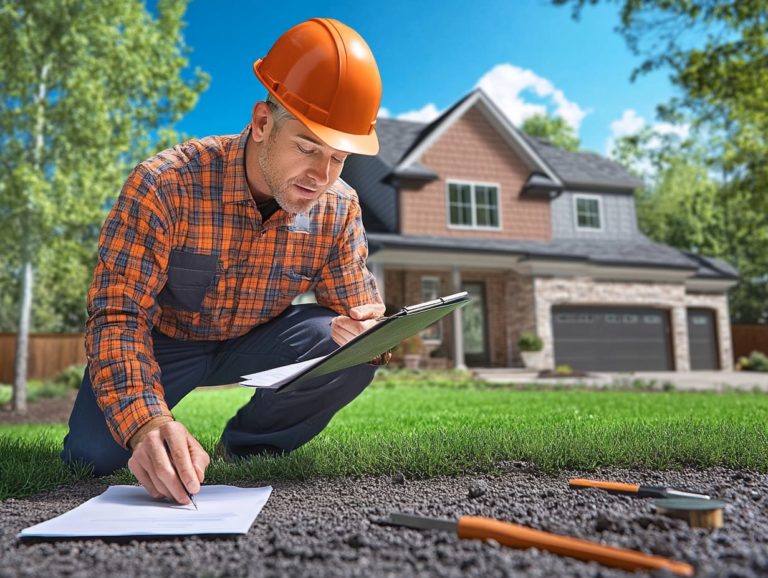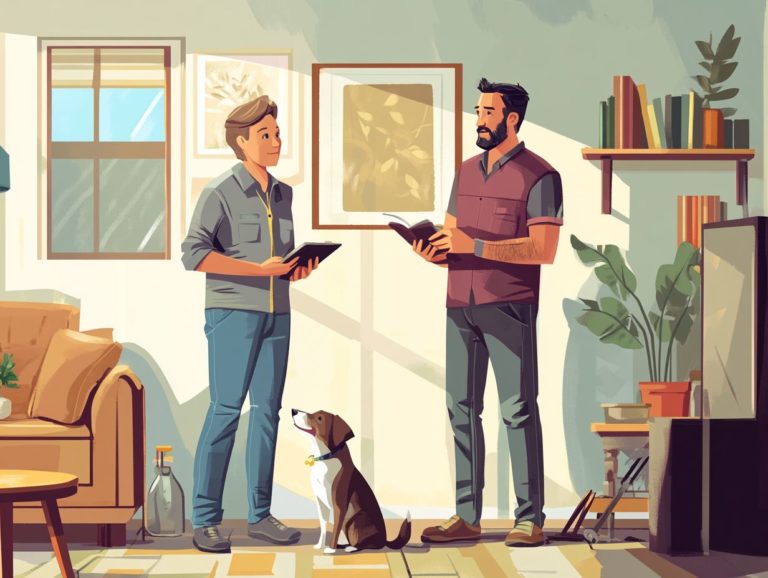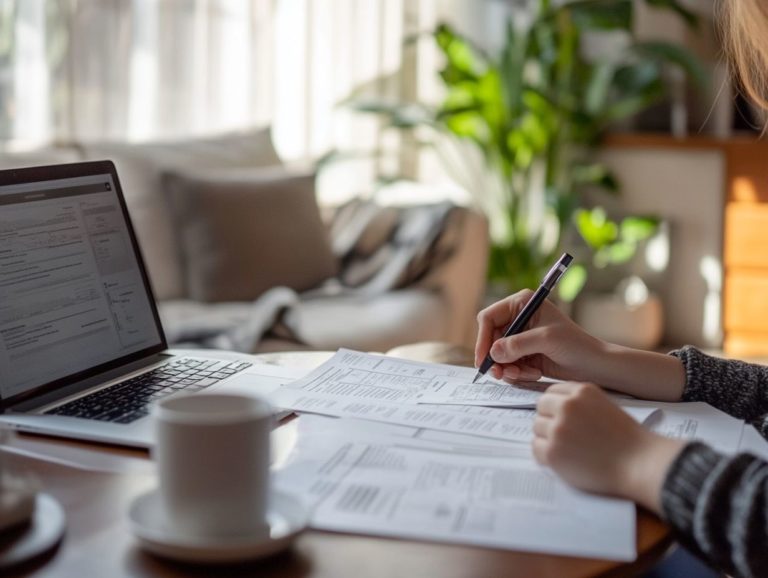How to Communicate with Your Home Inspector
Effective communication with your home inspector is crucial for a successful inspection process. Grasping their insights can help you avoid costly surprises later on.
This guide will lead you through the essential stages of communication from preparing for the inspection to interpreting the final report. You ll learn how to ask the right questions, what to expect during the inspection, and the best practices for maintaining a clear and constructive dialogue.
Immerse yourself in this process to ensure your home inspection experience is both smooth and enlightening!
Contents
Key Takeaways:
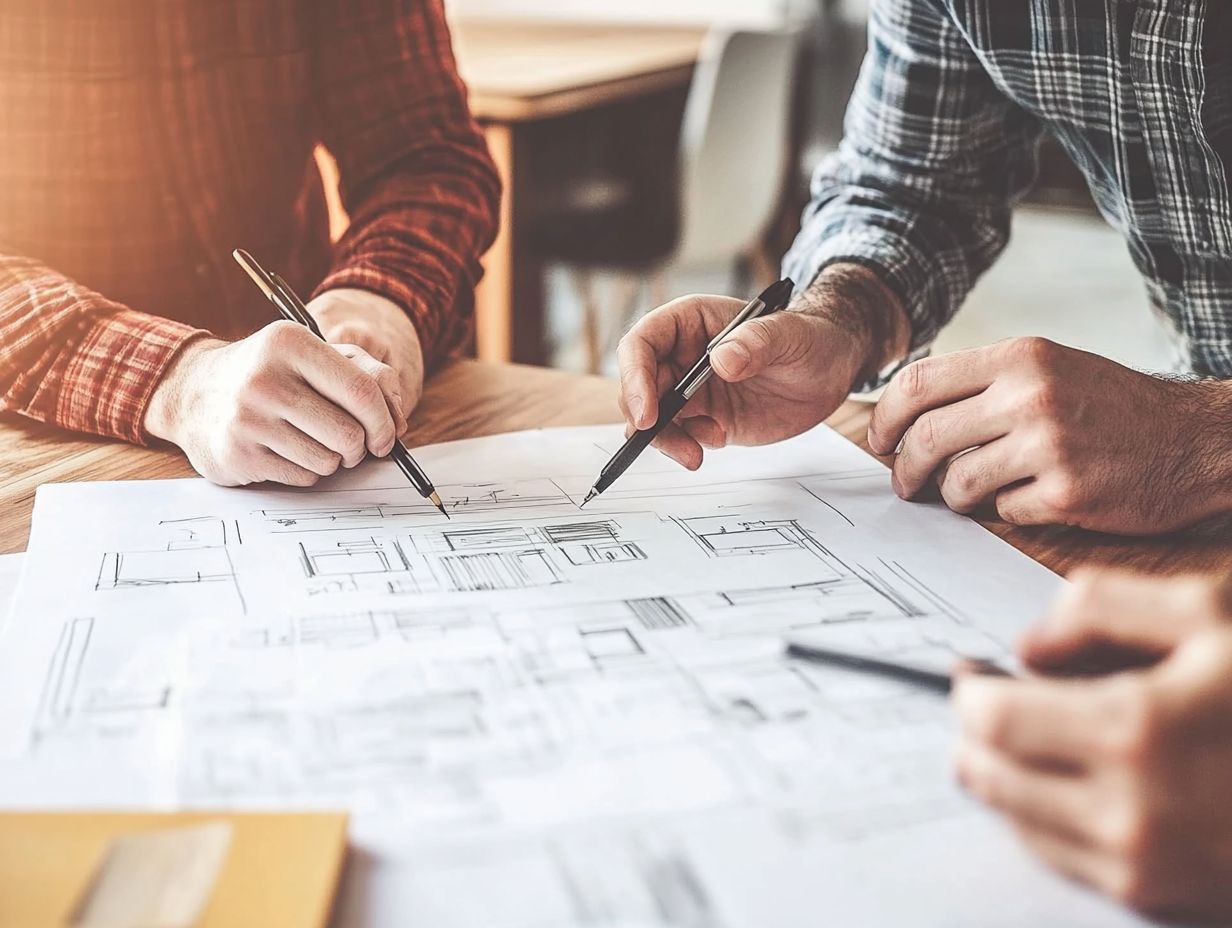
Effective communication with your home inspector is crucial for a successful inspection process and a thorough understanding of your home.
Before the inspection, gather all necessary information and documents. Communicate any specific concerns or areas of interest to your home inspector.
During the inspection, take notes, ask questions, and share any additional information or issues you may have noticed with your home inspector.
The Importance of Communication with Your Home Inspector
Effective communication between you and your home inspector is essential for buying or selling a home. To ensure your needs and expectations are met while adhering to industry standards, consider following this guide on how to get the most out of your home inspection.
This relationship builds trust and influences your overall experience, especially if you are a first-time buyer navigating construction jargon and inspection processes.
Open dialogue regarding the property’s condition, potential safety hazards, and specific inspection findings is crucial for establishing confidence in your inspector s expertise.
Why Effective Communication is Crucial
Effective communication is essential in home inspection, as it profoundly affects the clarity and understanding of your inspection report.
Aligning the inspector’s findings (the results of the inspection) with your expectations is key. When inspectors prioritize clear communication, they build trust and rapport with you, vital for a successful inspection process.
Strategies such as asking questions for clarification not only ensure that your concerns are addressed but also enable you to engage actively in the discussion.
By providing a detailed report that presents findings in straightforward terms, the inspector equips you to make informed decisions about your property. This comprehensive approach enhances your overall satisfaction, fostering a more transparent and effective relationship that benefits everyone involved.
Preparing for the Inspection
Getting ready for your home inspection is exciting! Here s what you need to know.
From scheduling appointments to pinpointing potential safety hazards within the property, your actions can impact both the inspection experience and the eventual outcomes for homebuyers and real estate agents alike.
What You Need to Know and Do
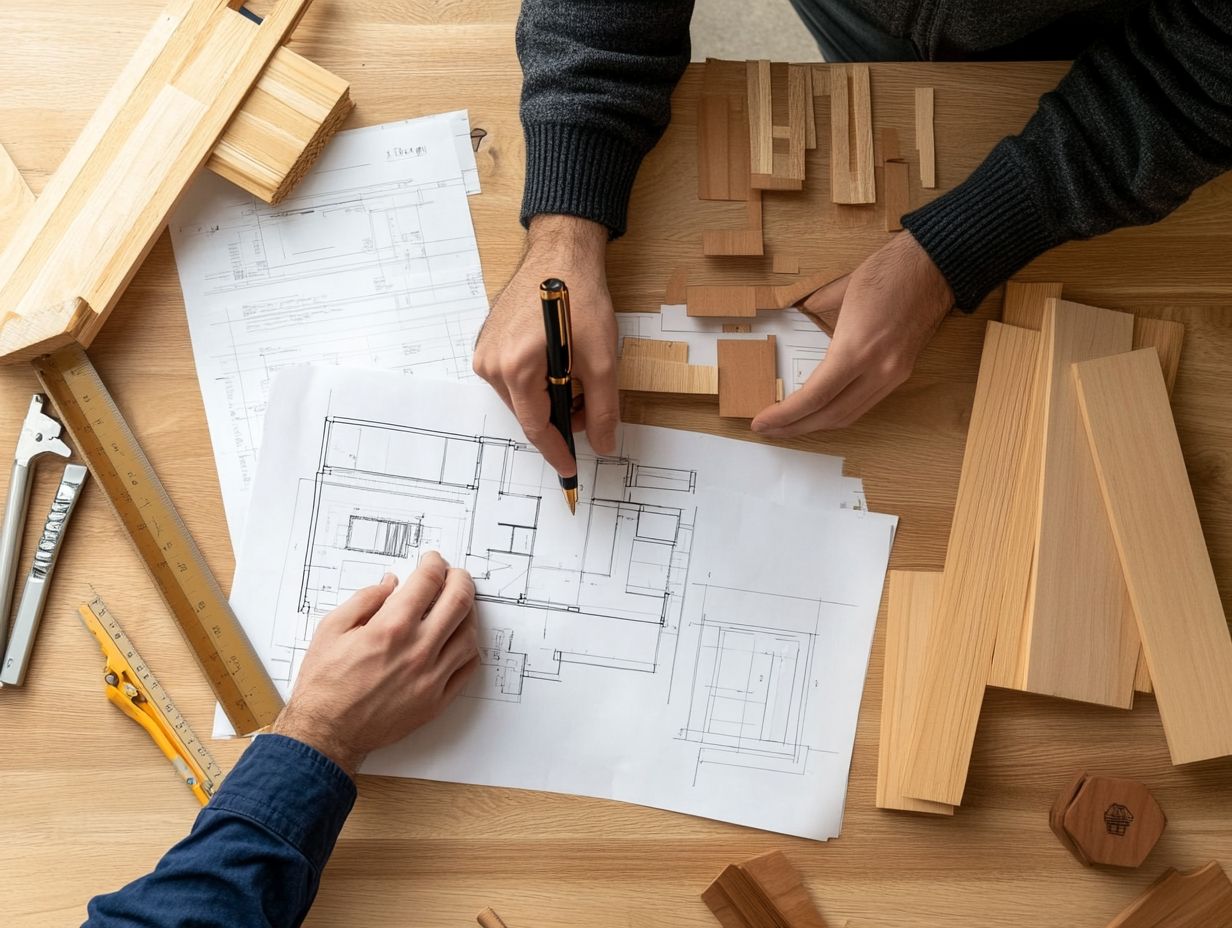
Get ready for your home inspection! Being prepared is key to a smooth experience.
Start by gathering relevant documents, such as previous inspection reports, maintenance records, and any warranties related to appliances or systems in the home. This information will allow the inspector to focus on specific areas of concern.
Clear communication is vital; prepare a list of questions or concerns you’d like addressed during the inspection. Engaging with the inspector on-site presents a valuable opportunity to gain insights and understand potential issues firsthand. To ensure you’re fully prepared, check out this guide on how to make the most of your home inspection.
Don t hesitate to ask for clarification or additional details about any findings. This fosters a collaborative environment that enhances the overall inspection experience.
During the Inspection
During the home inspection, actively engaging with your inspector is essential. This interaction enables you to grasp the findings in depth, whether they involve significant issues or minor concerns. To ensure you’re fully prepared, consider reviewing how to prepare for your home inspection.
It ensures that the inspection process remains transparent and informative.
What to Expect and How to Communicate
Know what to expect during your home inspection. Establishing a clear feedback loop with your inspector will enhance your communication and satisfaction, especially when you learn how to follow up after a home inspection.
You should anticipate a comprehensive evaluation of the property’s structure, systems, and surroundings. The inspector will systematically identify potential health issues, such as mold, leaks, or structural concerns.
Talking openly with your inspector is essential. It allows you to ask questions, clarify findings, and receive constructive feedback on necessary repairs or maintenance strategies, including key questions to ask your home inspector.
Fostering open communication will give you a clearer view of your property’s condition, enabling you to plan exciting improvements for your new home!
After the Inspection
After the home inspection, grasping the intricacies of the detailed inspection report becomes essential for you as a homebuyer. This report provides valuable insights into the property’s condition, enabling you to engage in informed follow-up discussions.
Effective communication enhances your relationship with clients and helps negotiate repairs with the seller.
Understanding the Report and Follow-Up Communication
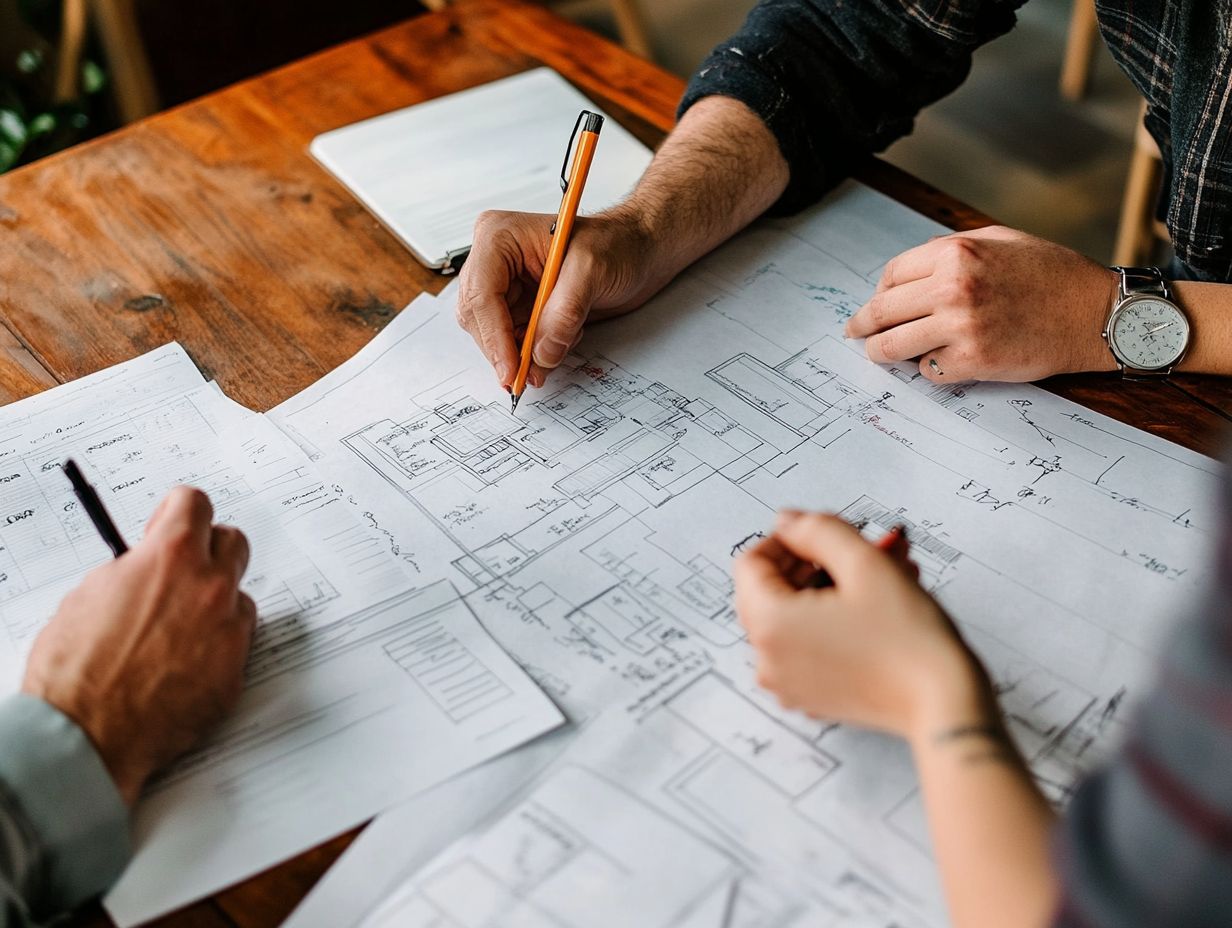
Understanding the inspection report is crucial for you as a homebuyer. It contains essential information that reveals the property’s condition and lays the groundwork for productive communication with the inspector.
By carefully examining each section of the report, you can uncover insights into potential issues and necessary repairs that may influence your buying decision. Discussing the report with the inspector is vital; they can break down any technical jargon and provide context for their findings.
This conversation not only clarifies the report but also equips you with the knowledge needed to negotiate effectively with sellers. Utilizing educational resources, such as home maintenance guides or online forums, can further enhance your understanding of common inspection issues and shed light on the implications of various findings.
Tips for Effective Communication
To elevate the home inspection experience, it’s crucial for you to employ effective communication techniques. This approach will help you build a strong rapport with your clients and ensure excellence in customer service, including understanding how to prepare for a home inspection.
By mastering these techniques, you can facilitate a smoother inspection process that aligns perfectly with your clients’ expectations.
Best Practices for Communicating with Your Home Inspector
To cultivate a productive relationship with your home inspector, it’s crucial to embrace best practices for communication that prioritize your needs and establish a reliable feedback loop. For more insights, check out how to make the most of your home inspector’s expertise.
Start by setting clear expectations from the very beginning. This can greatly enhance the inspection process. Don t hesitate to take the initiative and ask questions; ensuring you grasp every detail and procedure is key.
It’s also vital to inform the inspector about any specific concerns or areas of the home that may need extra attention. By doing this, you enable inspectors to tailor their approach, resulting in a more thorough and personalized assessment.
Engaging in open dialogue clarifies any uncertainties and fosters collaborative problem-solving, ultimately leading to a smoother and more effective home inspection experience.
Frequently Asked Questions
What is the best way to communicate with my home inspector?

The best way to communicate with your home inspector is through a combination of in-person meetings, phone calls, and emails. For effective interactions, check out this guide on how to communicate with your inspector. This ensures that all your questions and concerns are addressed and allows for clear communication throughout the inspection process.
Should I attend the home inspection and communicate directly with my inspector?
Yes, it is highly recommended that you attend the home inspection and communicate directly with your inspector. This will give you the opportunity to ask questions, get clarification on any issues, and have a better understanding of the inspection report.
How can I prepare for communicating with my home inspector?
Before the home inspection, make a list of specific areas or concerns for your inspector. This ensures you cover everything important.
Gather any relevant documents about your home. This includes maintenance records and warranties.
What should I do if I have questions during the home inspection?
If you have questions during the inspection, ask your inspector. They are there to assist you and explain the property’s condition.
Taking notes or pictures can be helpful for later reference.
How should I address any concerns or issues with my home inspector?
Address any concerns directly and calmly with your inspector. Be specific and ask for clarification when necessary.
Open communication is key for a successful inspection process.
What if I don’t understand something my home inspector is explaining?
If something isn t clear, ask for clarification. Inspectors are there to help you understand the property’s condition.
Make sure you fully understand the inspection report before deciding about the property.

